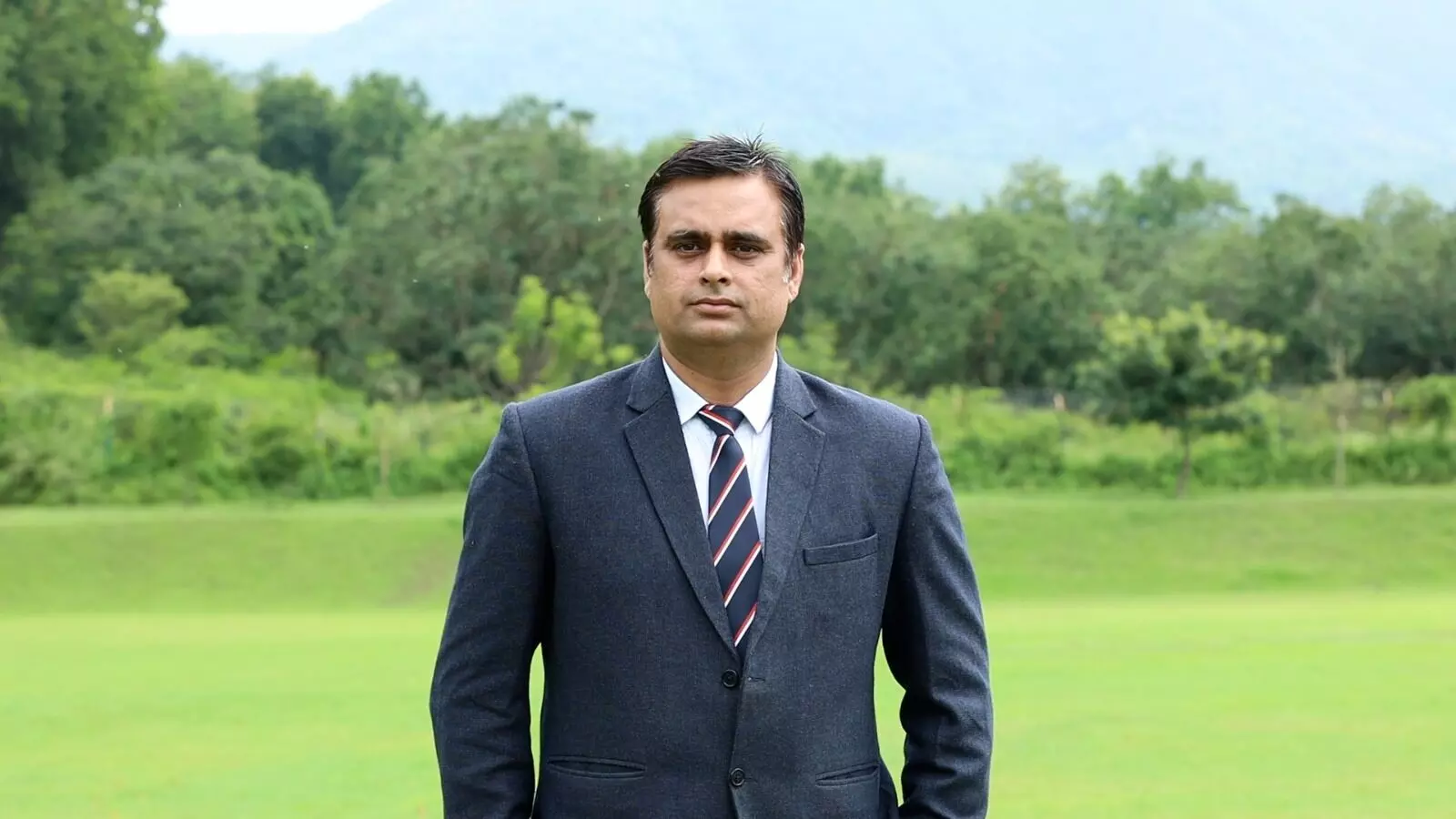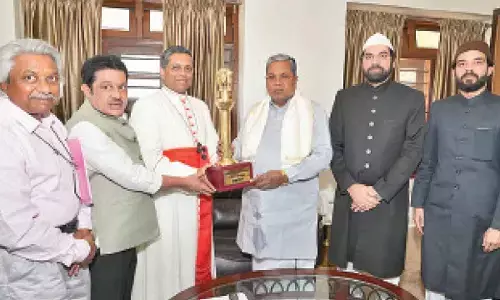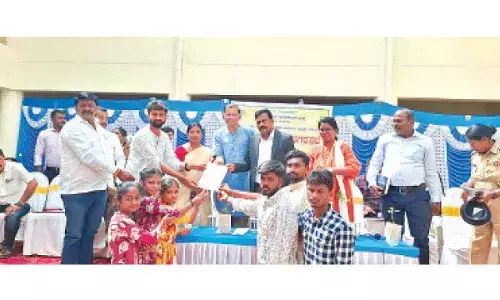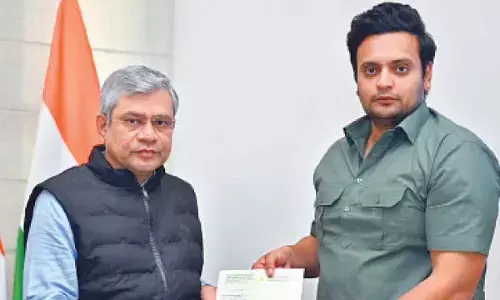UPES Leads the Charge in Upskilling for Today's High-Tech World

Manish Madaan, Registrar and Director of Training & Placements at UPES, discusses the vital role of upskilling amidst rapid technological advancements, emphasizing UPES's proactive approach in bridging the skills gap beyond traditional degrees.
1. In today’s competitive landscape, industries across fields are evolving constantly. How do you see upskilling being an essential element to build the gap other than degree?
In recent years, the world has gone through immense transformation. The adoption of technology and innovation is rapidly shaping up industries, their demands, and skill requirements. As technology advances and becomes more widely used in various sectors, there has been a growing disparity in skills, which needs to be addressed at all levels be it for budding professionals entering the job market or seasoned workers seeking to remain relevant in their fields. For instance, in India, as the IT sector continues to grow, there is a high demand for professionals with expertise in emerging technologies like artificial intelligence and data analytics. Similarly, in the manufacturing sector, the adoption of advanced machinery and new-age technology requires workers to have technical skills which can only be acquired through hands-on experience, specialised training programs and conjoint industry and academia efforts.
In order to thrive in this rapidly changing environment it’s important to build a strong knowledge base and continuously upskill and keep pace with technological advancements and industry trends. At UPES, we encourage industry partnerships to integrate practical training opportunities focused on emerging fields. By leveraging the expertise of industry leaders and fostering knowledge-sharing to enhance curriculum we ensure that our graduates are well-prepared for the dynamic and competitive landscape. This integration not only enhances the employability of students but also fosters innovation and industry-relevant research within academic institutions. We also have a dedicated program called EDGE (Enhanced Development Growth and Enrichment) which focuses on the holistic development of students, augmenting their employability and competitive prowess and nurturing their personal and professional growth. The team also conducts robust training programs, boot camps and on-campus sessions by leading companies like L&T, Cognizant, and others. The university has implemented it as a credit-essential course aimed at providing students with comprehensive training encompassing domain knowledge, soft skills, aptitude, and overall behavioural adaptability.
2. With a mix of innovation in all education formats, the training ecosystem is also evolving. Elaborate on some of the upskilling initiatives taken by UPES in this regard.
Fostering innovation in educational formats and training ecosystems is imperative for staying relevant in a rapidly evolving world. By integrating cutting-edge technology, interactive learning methods, and real-world applications, institutions can empower students with practical competencies tailored to meet the evolving needs of the future workforce. By embracing innovation in education, institutions play a pivotal role in ensuring they are well-equipped to navigate and thrive in this dynamic world. Some of these initiatives are:
Experiential Learning: We emphasise experiential learning through project-based assignments and industry-oriented case studies. By engaging students in practical problem-solving activities, UPES enhances their critical thinking abilities and encourages them to apply theoretical knowledge to real-world scenarios. This approach not only enriches the learning experience but also prepares students for the complexities of the professional world.
Integration of cutting-edge technology into the curriculum: We recognise the importance of staying abreast of technological advancements, and thus incorporate training modules on emerging technologies such as artificial intelligence, data analytics, blockchain, and cybersecurity. By equipping students with practical skills in these areas, we ensure they are well-prepared to meet the demands of the modern workforce.
Industry Partnerships: UPES has partnerships with industry leaders across sectors to offer specialised training programs. These partnerships facilitate industry-relevant curriculum development and provide students with opportunities for hands-on learning through internships, workshops, and guest lectures. This exposure enables students to gain insights into industry best practices and fosters a deeper understanding of real-world challenges.
3. Research and Innovation are at the core of values of UPES. How does it help in upskilling the students so that they are industry-ready?
As a purpose-driven institution, we place paramount importance on fostering innovation to tackle pressing societal challenges. By nurturing a culture of innovation, we prepare students to thrive in a rapidly changing world, equipping them with the skills and mindset needed to contribute meaningfully to the economy and society. Forty-one (41) of our faculty are among the world’s top 2% researchers, as per the Stanford list. Through state-of-the-art infrastructure, shared expertise, and fostering industry-academia interactions, our endeavours drive innovation and enable students to explore emerging trends. Our hands-on approach equips students with practical knowledge and problem-solving abilities, preparing them to tackle real-world challenges in their respective industries.
Furthermore, our research-driven approach fosters a spirit of entrepreneurship and creativity among students. Our incubation program – Runway provides students with opportunities to transform their ideas into viable business ventures. This not only enhances their practical skills but also instils an entrepreneurial mindset essential for success in today's dynamic business environment.
4. How do you see the role of educators evolving with innovation leading in the field of education? Share some of the initiatives taken by UPES to upgrade Educators in this regard.
Educators play a significant role in shaping a student’s perspective. They foster a supportive and empathetic learning environment for their students to cater to individual requirements for the most effective learning outcomes. By acknowledging varied learning preferences, they personalise educational materials, ensuring that even intricate concepts are readily understandable for all learners. With the increasing role of innovation in the educational environment driven by advanced technology, the significance of educators will increase. The future of education relies on the seamless integration of teachers with the immense possibilities presented by new-age technologies, ensuring students have access to the right blend of human knowledge and technological advancements.
We have a dedicated program for educators - PGCAP (Post Graduate Certificate in Academic Practice) which is a specialised program aimed at offering faculty and academic staff a comprehensive platform for advancing their academic practice, fostering personal growth, and facilitating professional development. Moreover, the program acknowledges the significance of grasping students' needs, interests, and experiences, and actively integrating them into the curriculum. This approach enhances the overall classroom experience for students, fostering greater engagement and relevance.
5. Where do you see innovation in education with upskilling to the core in the next 5 years?
In the coming years, there will be a greater emphasis on continuous upskilling. Educational institutions will likely adopt more innovative methods to enhance learning outcomes and prepare students for the demands of the future workforce. This could involve the integration of newer technologies to offer personalised learning platforms and gamified learning experiences tailored to individual student needs.











